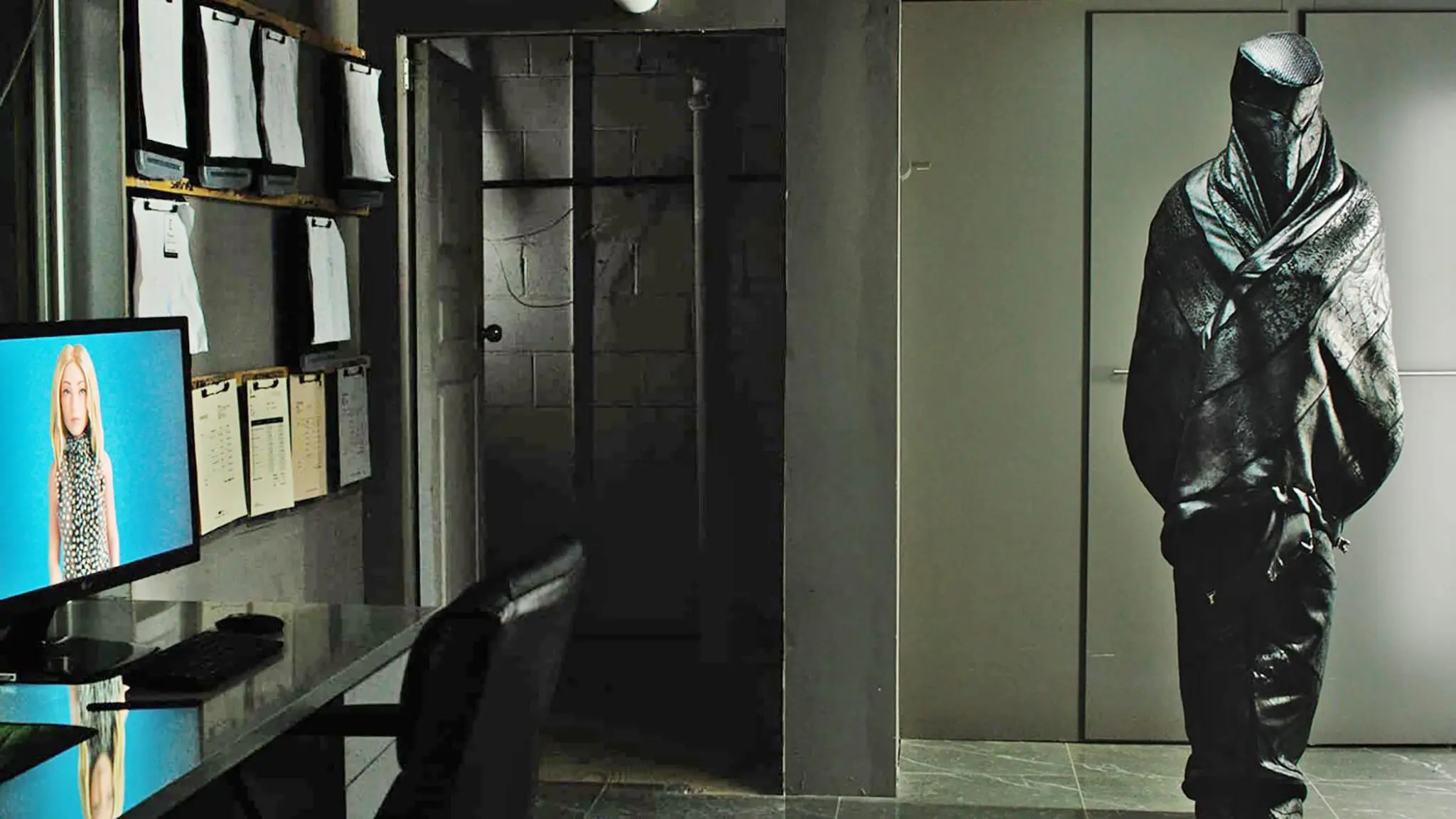Watching David Cronenberg’s The Shrouds for New Scientist, 6 August 2025
Myrna (Jennifer Dale) has likely had better blind dates. The edible flowers on her starter look funereal; her table-for-two is hemmed in by strange shrouds in tall vitrines; and as she makes small-talk with the owner Karsh (Vincent Cassel), it becomes increasingly apparent to her, and to us, that this restaurant is attached — financially, architecturally and intellectually — to a cemetery.
And not just any cemetery: its headstones have viewscreens. Because they’re swaddled in those natty (camera-riddled, internet-enabled) shrouds, you can come here to watch your dead loved ones decompose.
Over a career spanning more than half a century, David Cronenberg has mastered the art of delivering everything at the wrong speed. On paper, and in precis, his films look like satires. Their playfulness is self-evident. Just look at the characters’ surnames: Karsh’s is “Relikh”. Myrna’s is “Shovlin”, for heaven’s sake. And — again on paper — what’s to take seriously about this scenario, which takes pot-shots at internet-of-everything boosterists (who would surely network the dead if they could) and “grief tech” start-ups that, among other money-making wheezes, invite you to chat with posthumously fed, AI-enabled avatars of your deceased loved ones?
But Cronenberg does not write satires. He writes full-throated screenplays (and one novel) about what you and I might actually experience, were these oh-so-satirical scenarios to come to pass, stretching our sense of ourselves.
Karsh’s date with Myrna goes nowhere, but the tech entrepreneur does find solace — and more than solace — in Terry, his dead wife’s identical twin. Diane Kruger plays both the living sister and the dead one, and also voices Hunny, an untrustworthy digital assistant programmed by Terry’s loser ex-husband Maury (a wonderfully weasily Guy Pearce). At night the dead sister Becca turns up, without a breast, without an arm, as the ravages of her disease take hold. Are these nighttime visitations flashbacks, or fantasies? Do they humanise Karsh, because he loves his wife, however disfigured, or do they damn him, because he very clearly loves his wife’s disfigurement? Karsh is caught between guilt, anger and desire, convinced Becca was unfaithful with her old professor and first lover, and at the same time that the professor was conducting illegal experiments on her; and at the same time that all of this is a smokescreen concealing some deeper, more political conspiracy involving China, or maybe Russia, or maybe Budapest, or maybe Iceland (and all the while Terry, who loves a good conspiracy, can’t help but encourage Karsh’s mounting mania).
David Cronenberg’s wife of 38 years, Carolyn Zeifman, died in 2017 after a long battle with cancer, and it’s tempting to watch The Shrouds as an act of cinematic over-sharing. All five of Elisabeth Kübler-Ross’s “five stages of grief” — denial, anger, bargaining, depression, and acceptance — are explored in Cassel’s superb performance, weaponised by fantastical technology, or by paranoid technological fantasy, into a welter of unresolved plot macguffins. What if the strange growths on Becca’s dead bones are surveillance devices? What if the Chinese government is using our own corpses to spy on us? What if those growths are just cunningly camouflaged video assets; did Maury code them?
Imagine a restaurant full of exit signs and no exits and the maitre d’ shouting “Fire! Fire!” in your ear.
While The Shrouds may well be an expression of purely personal grief, 26 films in it’s equally clear that grief is Cronenberg’s abiding theme, and the engine that’s been driving his entire artistic output. In his movies, we make what accommodations we can with reality, but by the last reel it’s clear reality just isn’t listening.
The Shrouds is a wordy film, whose characters calmly explain ever more unlikely technologies to each other, convince each other of ever more complex conspiracy theories, and assert themselves in ever more outlandish ways. Nothing happens because, you know, DEATH. Calm, slow, relentless, The Shrouds is one of those devastating chamber pieces great directors make sometimes when they have nothing left to prove, and everything still to say.

